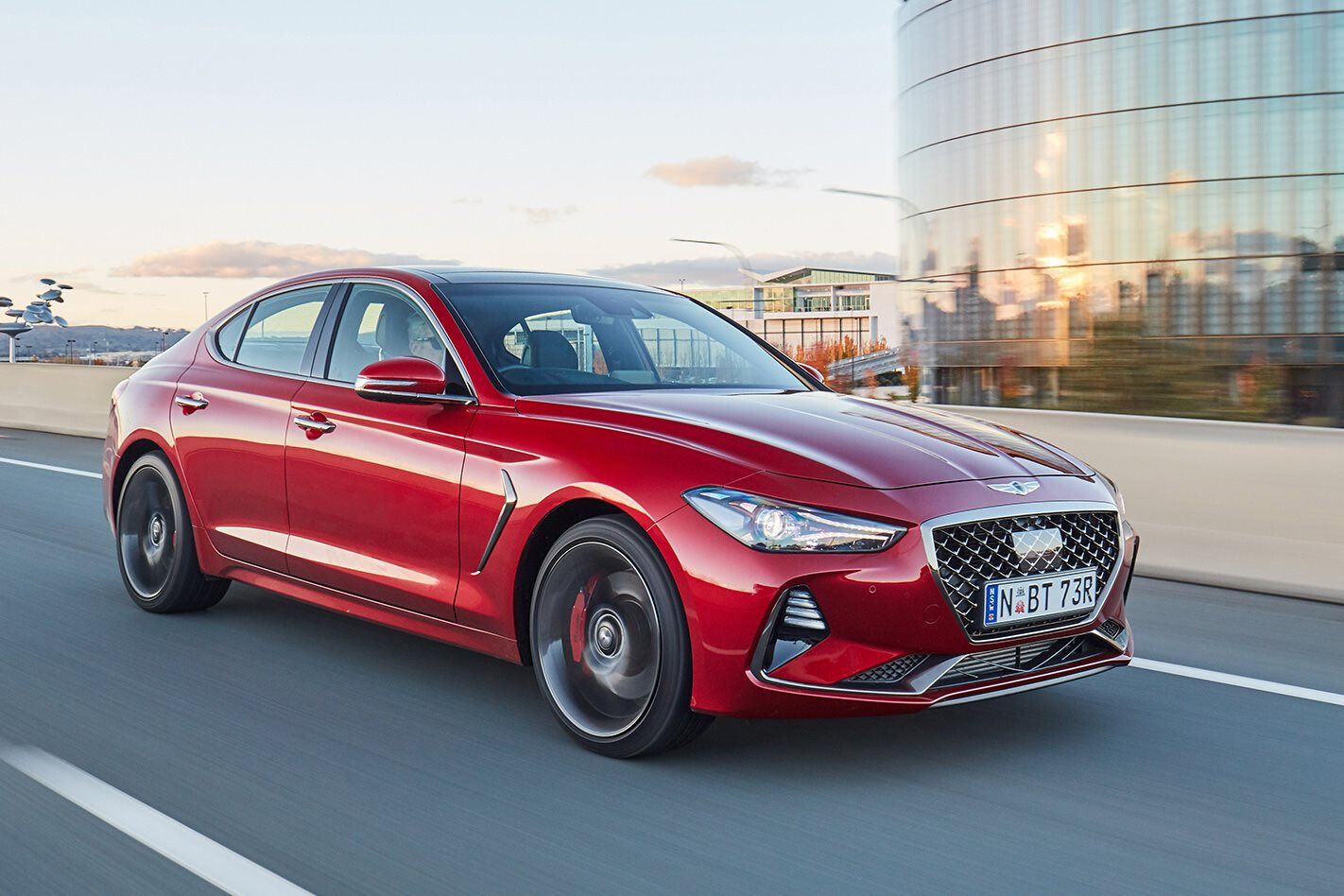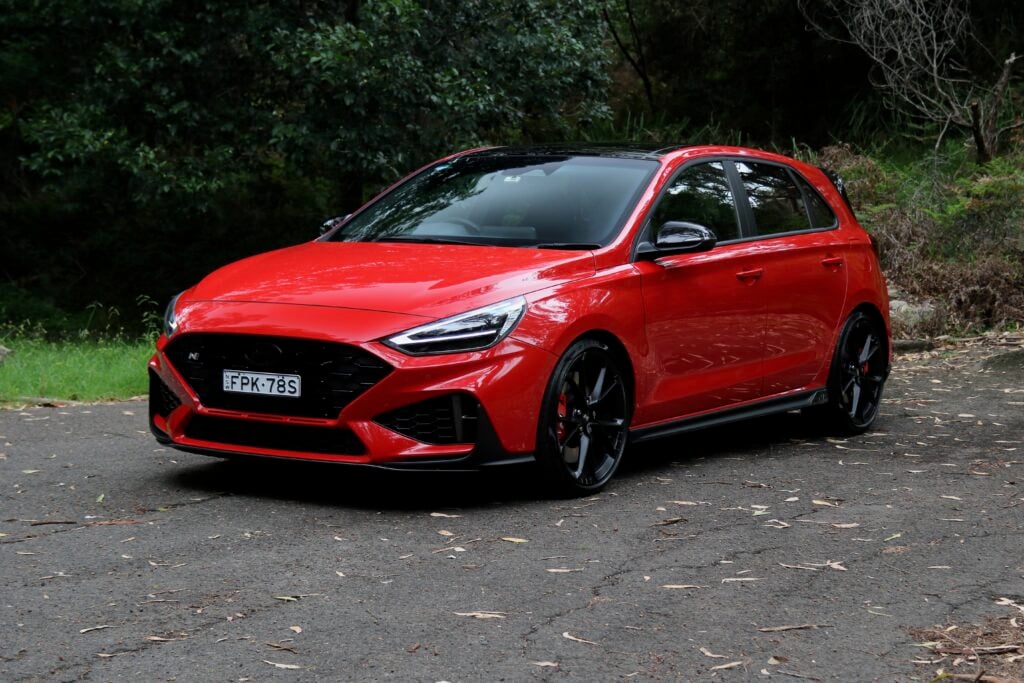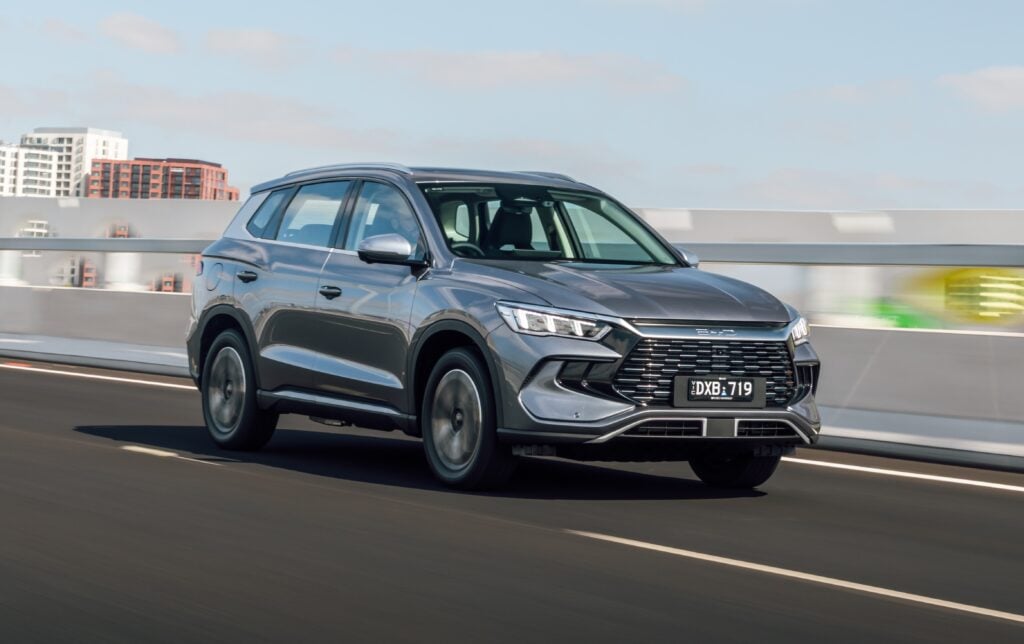Things we like
- Effortless power
- Handsome styling
- Strong fit and finish
- Great after-sales package
Not so much
- Transmission could be quicker-witted
- Infotainment looks basic
- Boot space tight
The Wheels Verdict: We suspected that the Genesis G70 could be something well worth the wait and so it has proved. Well built, great to drive and with a stack of equipment for the money, the G70 will change the way you think about premium Korean cars.
WHAT IS THE GENESIS G70 3.3T?
Genesis is the relaunched luxury arm of Hyundai and the G70 is its sports sedan that aims to take on the likes of the BMW 3 Series, Mercedes-Benz C-Class, Jaguar XE, Lexus IS and Audi A4. We could mention more but you get the picture. It’s built using much the same platform and engines as the Kia Stinger but is a more compact and wieldy thing. Those might be lofty targets but, without issuing too much of a spoiler, Genesis has clearly put some thought into this one.
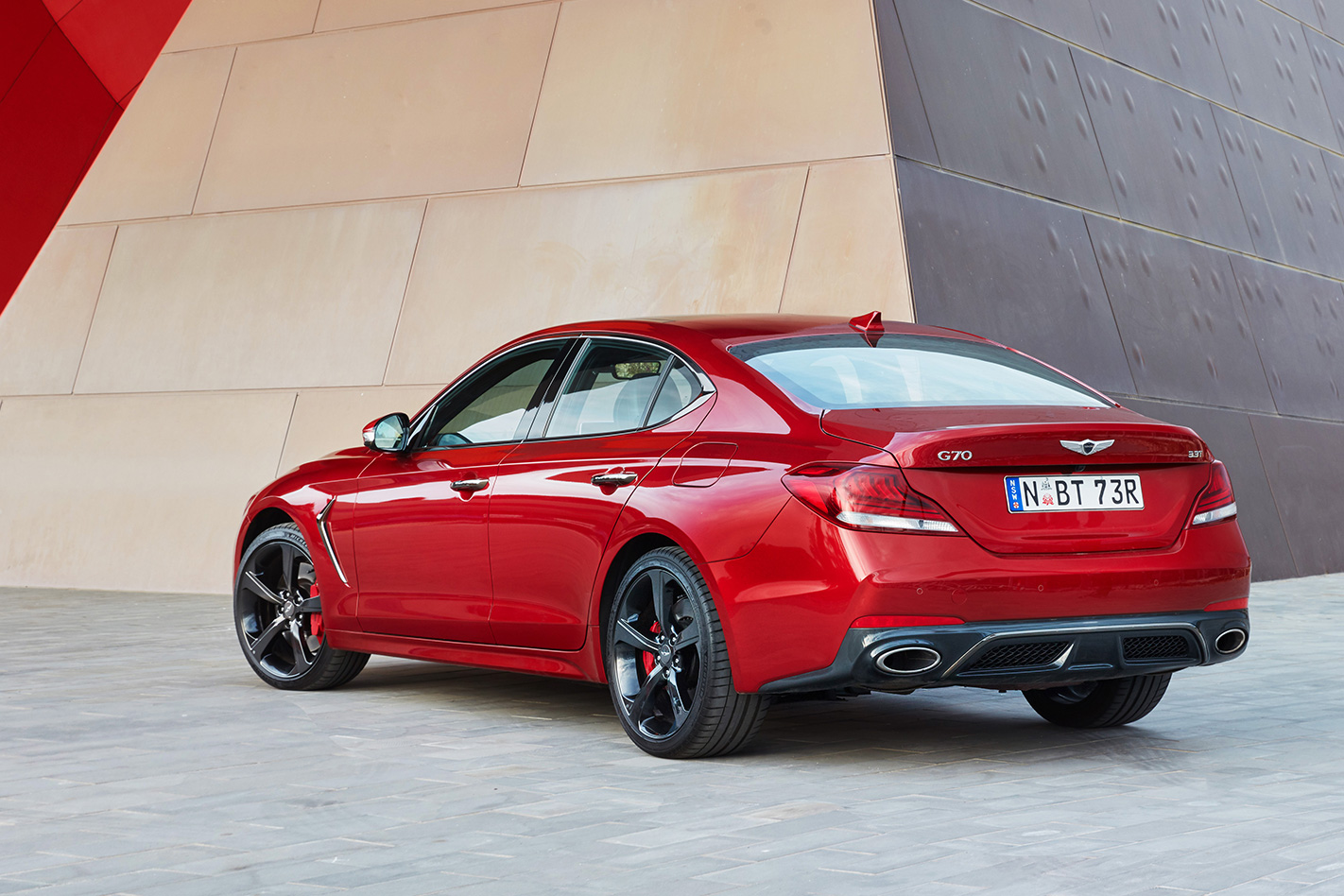
WHY WE’RE TESTING IT
We’ve waited a long time for the doubly-delayed G70 to make landfall here in Australia.
In the meantime, we’ve enjoyed the mechanically-related Kia Stinger but felt that it lacked the last few degrees of polish. Can the G70 address that issue and belatedly give the 3 Series something serious from Korea to contend with? That’s why we drove 1200km in one day to find out.
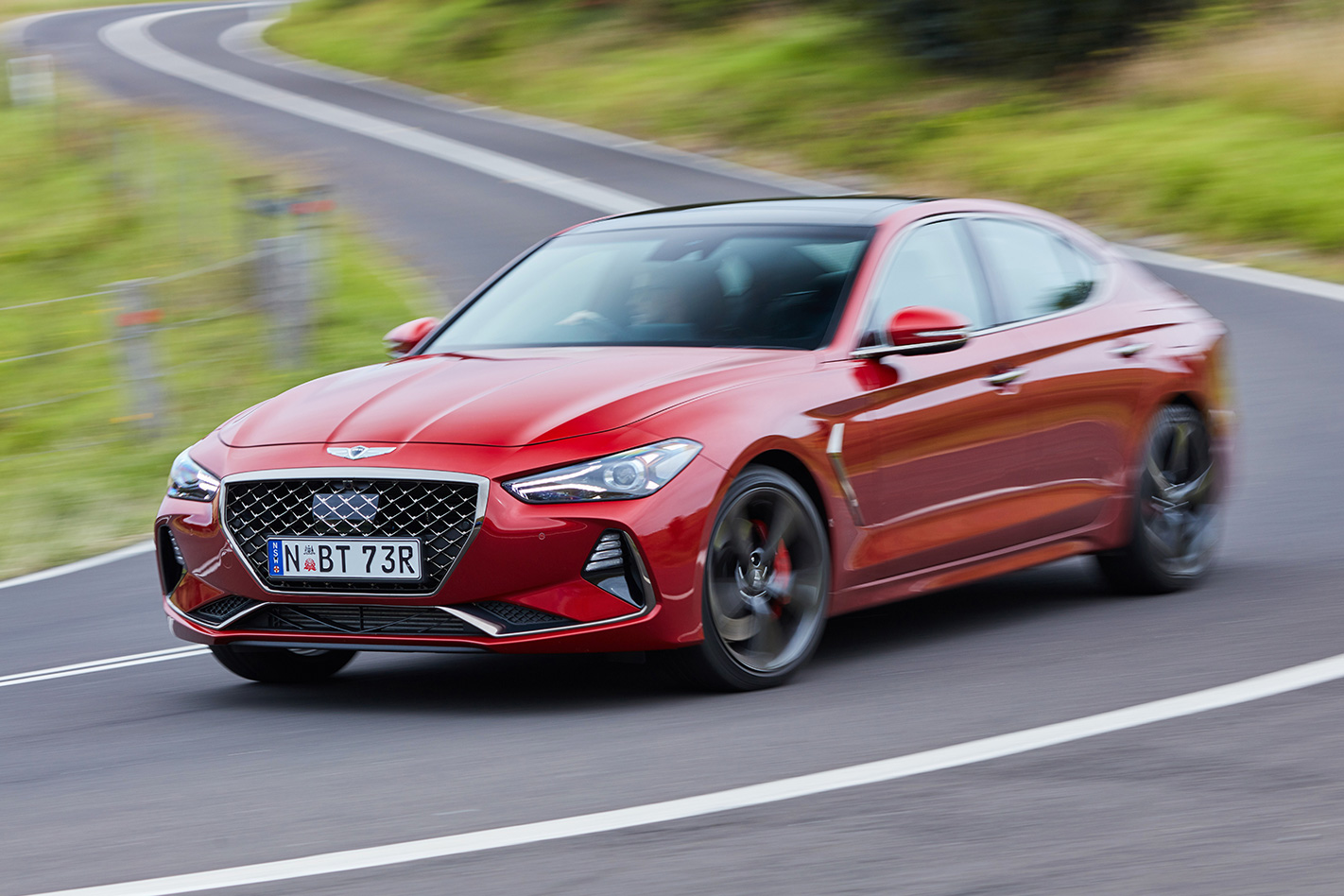
GENESIS G70 3.3T REVIEW
What we have here is a Kia Stinger that’s smaller, considerably more expensive, comes with a warranty that’s two years shorter and is from a manufacturer many will not have heard of. Couched in those terms, the Genesis G70 doesn’t jump out with the appealing value South Korea has become known for.
The numbers do indeed appear initially damning. The range-topping Stinger GT is, at $60K, more than twelve grand cheaper than the entry-level G70 3.3T. Opt for the flagship Genesis and you’ll be looking at a few notes off $80,000 before you start thinking about options. These are uncharted waters for a Korean car and tease at the very edge of Genesis’ nascent brand equity.
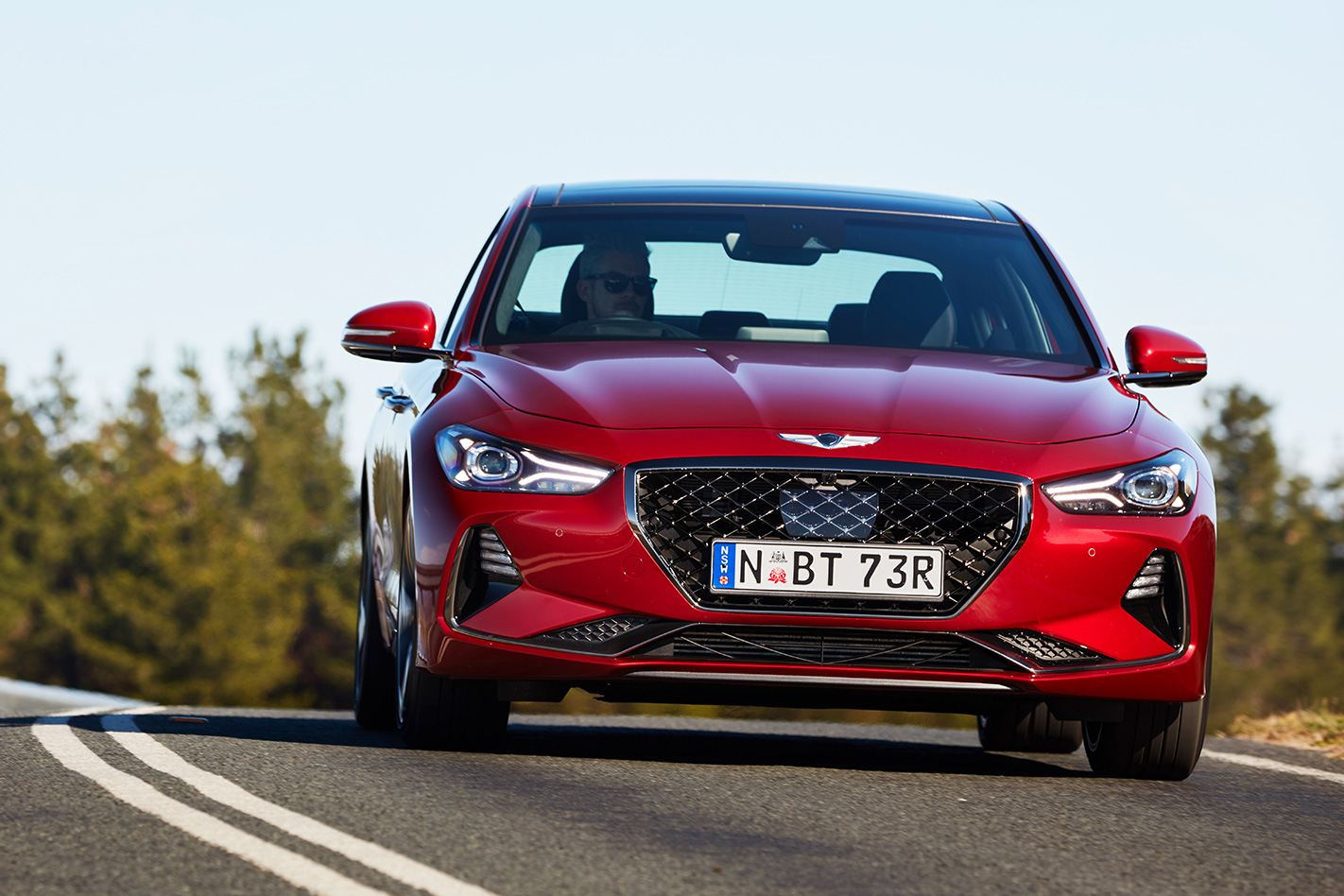
Like the Stinger, the G70 is offered in 179kW 2.0-litre turbocharged four-cylinder guise as well as the 272kW 3.3-litre twin-turbo V6. It’s the latter that we’re in today and it’s probably the car that has the most explaining to do, carrying as it does that hefty asking price. To lend some semblance of perspective, BMW’s all-conquering 330i wings in at $70,900. Granted, there’s only a 2.0-litre four-pot under its bonnet and the G70 3.3T is closer to an M3 than the 330i in terms of outright power, but that blue and white roundel nevertheless carries some clout, whether we care to admit the fact or not.
Readers of this publication will know our feelings on the Stinger GT. To summarise, it’s a car that feels great up to around 7/10ths, beyond which the dynamics feel ragged and unresolved. To ‘fix’ the Stinger it would need to be tauter, more all-of-a-piece on a challenging road. It would need to metaphorically shrink around you. A better quality interior wouldn’t go amiss either.
Congratulations, you’ve just described a Genesis G70.
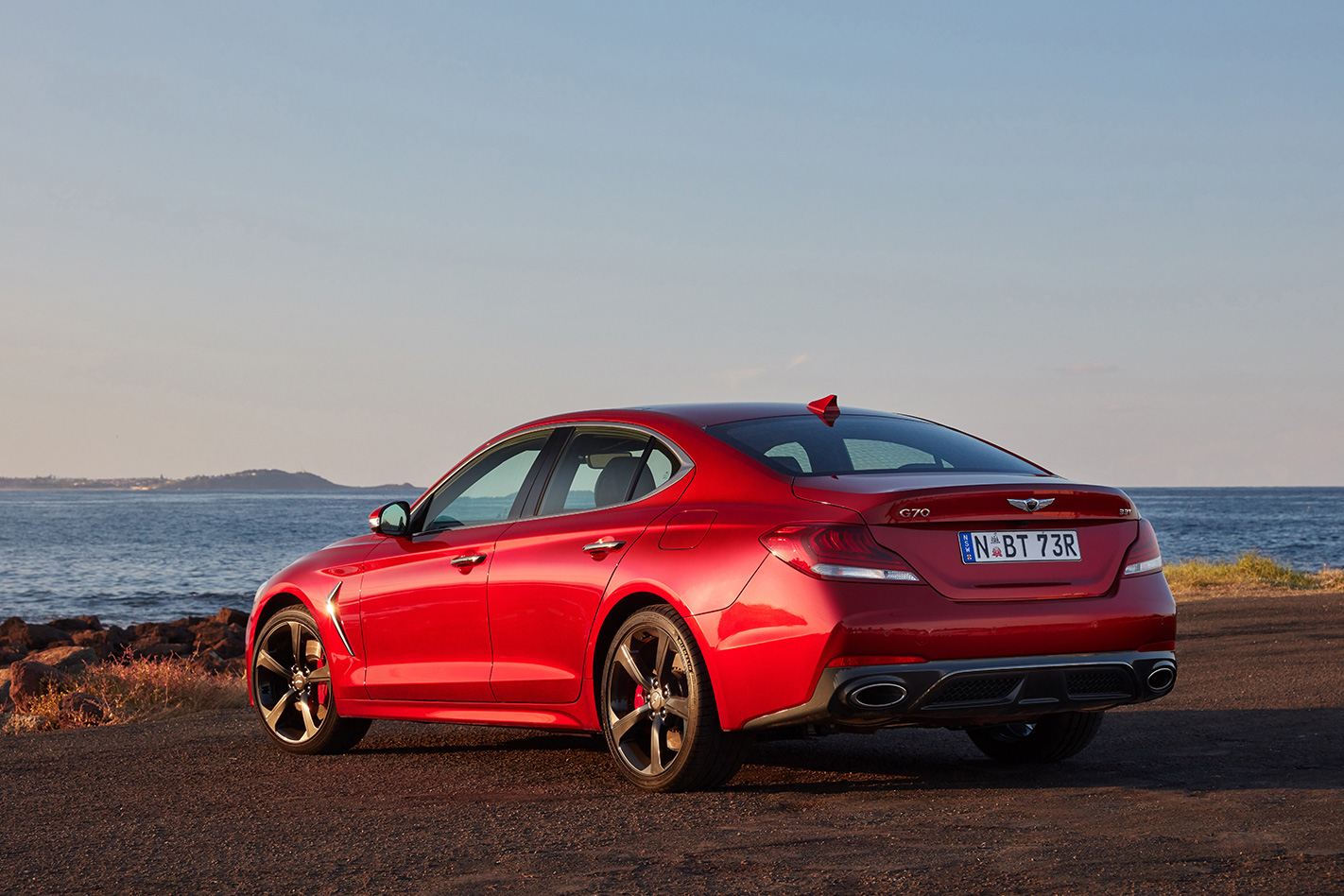
Hyundai – Genesis’ paymasters – assembled a world-class team to develop the car. It consisted of luminaries such as BMW dynamics gurus Albert Biermann and Fayez Rahman; Bentley design alumni like Luc Donckerwolke and SangYup Lee; and Mercedes’ interior trim oracle Bozhena Lalova. If you’re looking for a more premium look and feel, step forward exterior designer of the Bugatti Chiron, Sasha Selipanov. Marshalling this crack team of troops is former Lamborghini branding boss, Manfred Fitzgerald.
A slight surfeit of fresh air above the tops of its tyres aside, there’s little aesthetically to pick fault with the G70. There’s a fashionable amount of rake to it and the rear guards are subtly swollen. There’s real maturity in the exterior treatment, with each design element flowing gently and seamlessly into another. Some could see hints of Jaguar XE, while others thought Alfa Giulia, but, in truth, the overall execution is probably defter than either.
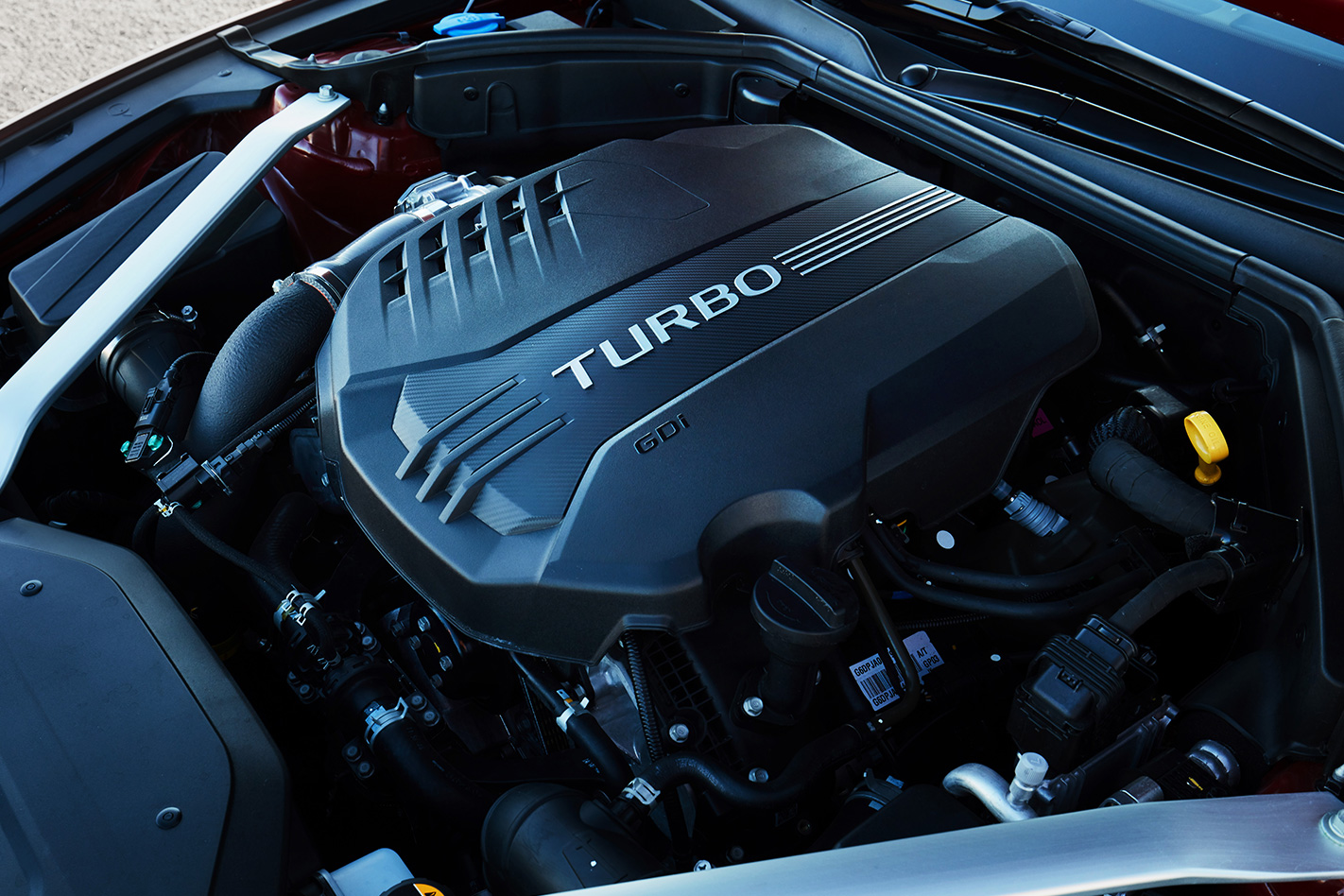
Drop inside and the good news continues. The cabin is beautifully finished. The G70 is offered in Sport, Ultimate and Ultimate Sport trims. While the trim walk-up might sound like wholesome Frisbee-based team games, the latter pair are priced identically at $79,950 which is a serious ask. The key difference is that the Sport makes do with an e-diff whereas the pricier cars get a proper mechanical LSD assisted by dynamic torque vectoring. Brembo brakes also give the Ultimate variants better stopping power.
There are some details that grate, such as the rather clunky infotainment screen that juts atop the dash like in a Hyundai i30 and features much the same graphics. The overall dashboard architecture also lacks an element of drama or design flair, but the detailing is extremely good. It’s the mark of a well-designed cabin when you can jump in and operate even the more complex controls without even considering recourse to the manual. There’s very little need to hunt and peck about the minor controls to get familiarised. This is clearly a car where the designers have thought long and hard about real-world usage scenarios.
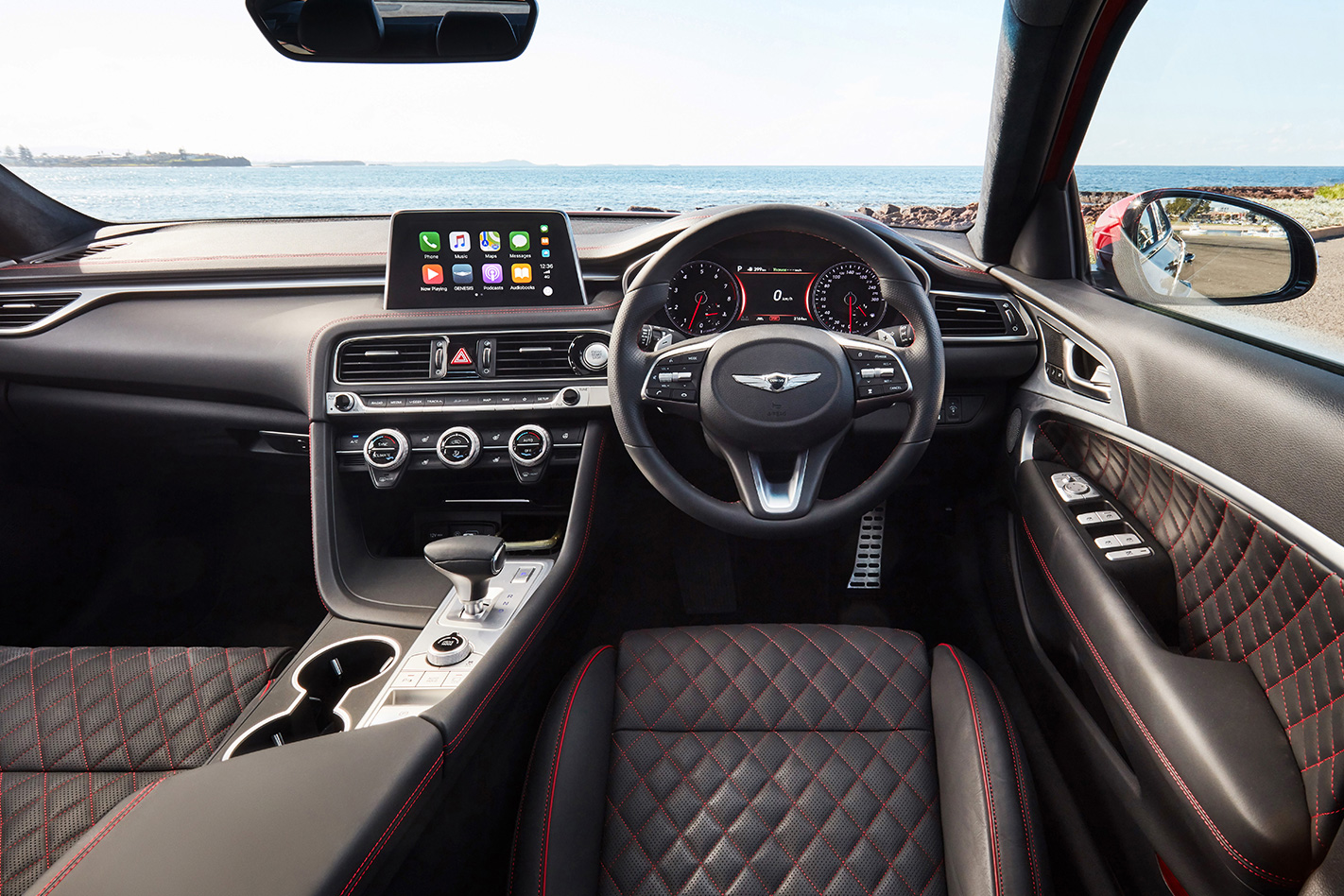
Fire the engine up and it settles to a muted thrum. The 3.3T-GDi Kappa engine has never been the most musical of units, but it always feels as if it’s bursting with energy. The spec sheet says 0-100km/h in 4.7 seconds and we don’t doubt it. We achieved a 4.9s time from a Stinger V6, so this car, which is about 20kg lighter and on a better tyre would doubtless go quicker in perfect conditions.
The biggest revelation is the ride/handling compromise. Where the Stinger could get itself tied in knots, sometimes feeling as if the front and the back were talking to each other via Google translate, the G70 feels extremely well tied down. There’s a suppleness to it with the adaptive suspension set to its more comfortable mode. Switch into Sport doesn’t markedly affect body control, but will get the front end pattering into braking zones on typical Australian country roads. In other words, the adaptive suspension doesn’t actually do a great deal. You’d probably leave it in its softer guise all the time and sharpen up the steering and throttle map if required with the Custom drive mode.
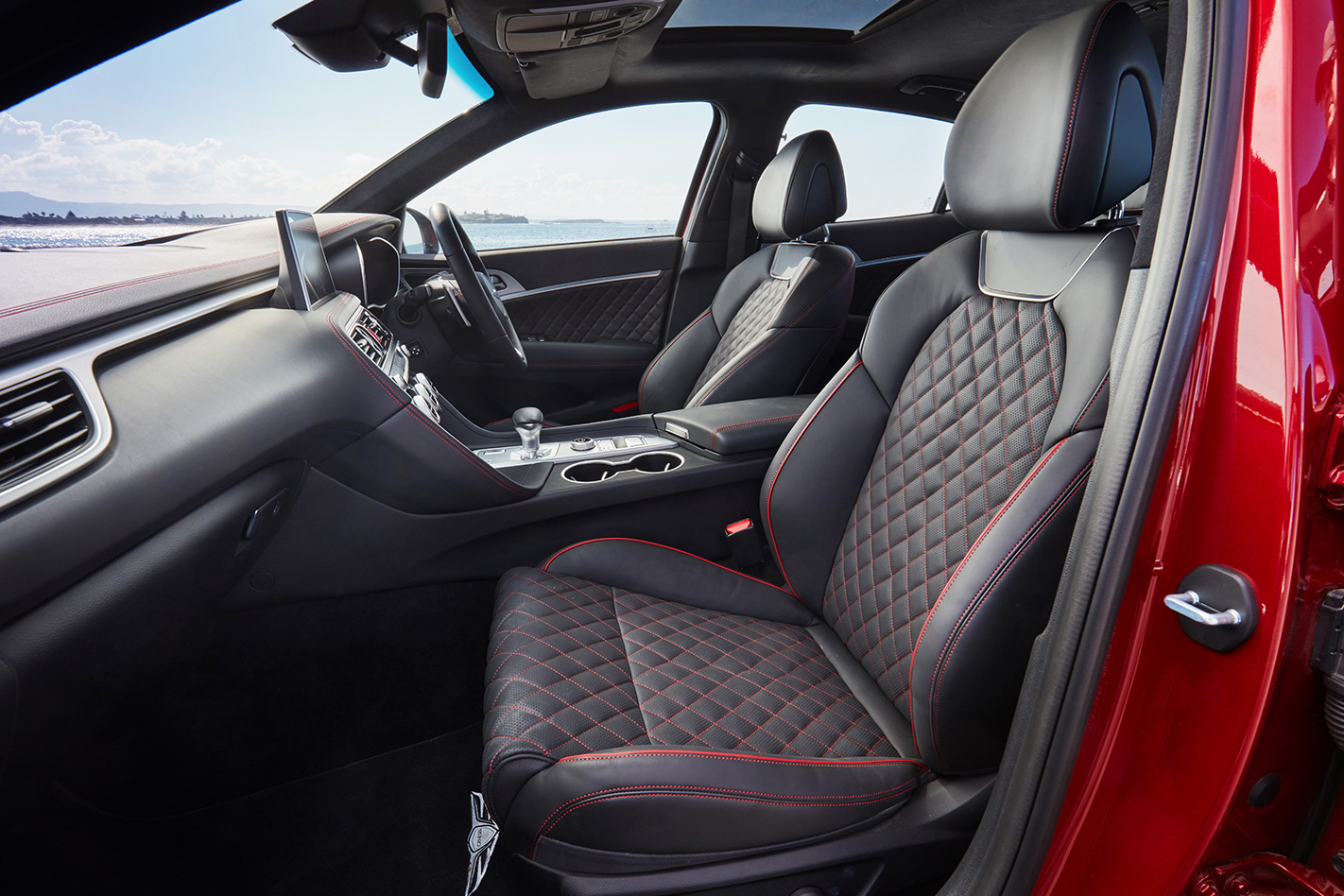
Front end grip is strong, the electrically-assisted steering is better than average and the stability control seems better calibrated than in the Stinger, which would suffer from a strange ‘strike-slip’ juddering at the limit of grip. By contrast, the way the G70 starts ladling 510Nm at the rear boots is a good deal more honeyed. The Brembo stoppers are well up to the task of reining in 1762kg of car and 105kg of me, but the 8-speed transmission, developed in-house at Hyundai isn’t the sharpest tool in the box. Shift speed is fine, but even with the vehicle set into Sport mode, it can leave you with as little as 1800rpm on the clock just as you try to pick up the throttle mid-corner, whereupon it will kick down a gear or two and try to catch up.
That’s hardly the formula for a smooth transition onto the gas and while this problem is exacerbated in the smaller 2.0-litre turbo engine, the 3.3T could still benefit from a little better fluency here. Likewise, the ‘box could use a dedicated manual mode. You can take over the tiny wheel-mounted paddles to shift for yourself, and the transmission doesn’t do that annoying trick of the Stinger where it only gives manual control for fifteen seconds or so and then upshifts to D just as you brake into a corner. Strangely, it will only hold a gear to redline when you marshal the paddles and stability control is switched off.
Refinement is generally good, and the G70 makes a great long distance cruiser. There’s some wind rustle around the mirrors and the Michelin Pilot Sport 4 is a good tyre but not the quietest set of boots. The adaptive cruise control is first rate but the ultra-zealous lane-keep assist will grab at the wheel violently if you don’t begin a lane change without indicating. But it’s also not particularly good at keeping you in the lane if, for a moment, you take your hands off to try to assess how well it’s monitoring the white lines, pinballing to the side of the lane before lurching in the other direction.
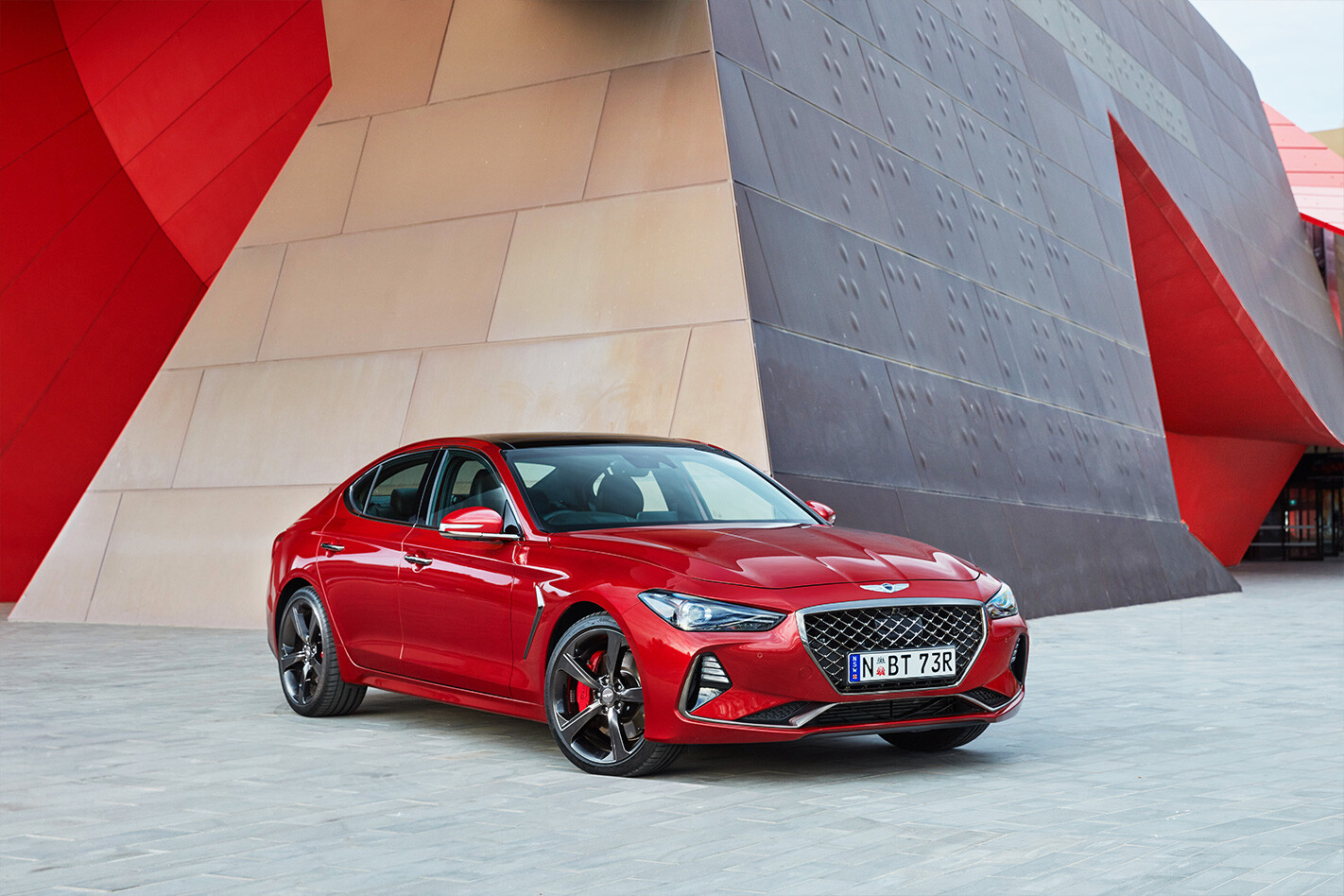
Packaging is about par for the course, with acceptable rear legroom and fairly so-so rear headroom. Space is fine up front, with good sightlines out of the vehicle and exemplary oddments storage and a well-designed Qi wireless charging pad. The quality of dash materials is also excellent, the cabin free of rattles and squeaks. The seats are big but supportive, with dynamic bolsters of upper spec models. Heated and cooled front seats and heated leather-trimmed steering wheel also take the edge off cold mornings.
The 330-litre boot is underwhelming. Compare that to the benchmark 480-litre figure you’d get in a BMW 3 Series or Audi A4.
Where the Genesis hits back is in pure ease of ownership. Whether it’ll be able to match the class average of 52 percent three-year residuals remains to be seen, but a five-year warranty, five-years of free servicing, no haggle pricing, a valet arriving at your house to deliver you a courtesy car and pick up your vehicle for scheduled services and all the garnish like five year mapping updates, five year roadside assist and a home delivery test drive service makes it easy to see why some buyers will be tempted by what promises to be a hassle-free ownership experience.
They’ll be rewarded with a sports sedan that looks great, goes hard, rides and handles beautifully and which delivers a level of build integrity at least as good as anything in its class. Yes, there are certain caveats but only the small boot could be perceived as a potential deal breaker. In short, it’s a class act. As good as the best of the Europeans? It’s in there swinging. Keep checking back here for a comparison where we find out once and for all whether Korea’s come of age.
GENESIS G70 3.3T VS RIVALS
Mercedes-Benz C-Class, BMW 3-Series, Audi A4, Jaguar XE
GENESIS G70 ULTIMATE SPORT PRICE AND SPECS AUSTRALIA
- Model: G70 3.3T Ultimate Sports
- Engine: 3.3-litre V6 twin-turbo petrol
- Max power: 272kW @ 6000rpm
- Max torque: 510Nm @ 1300-4500rpm
- Transmission: Eight-speed automatic
- 0-100km/h: 4.7sec
- Price: $79,950
- On sale: Now
Things we like
- Effortless power
- Handsome styling
- Strong fit and finish
- Great after-sales package
Not so much
- Transmission could be quicker-witted
- Infotainment looks basic
- Boot space tight


